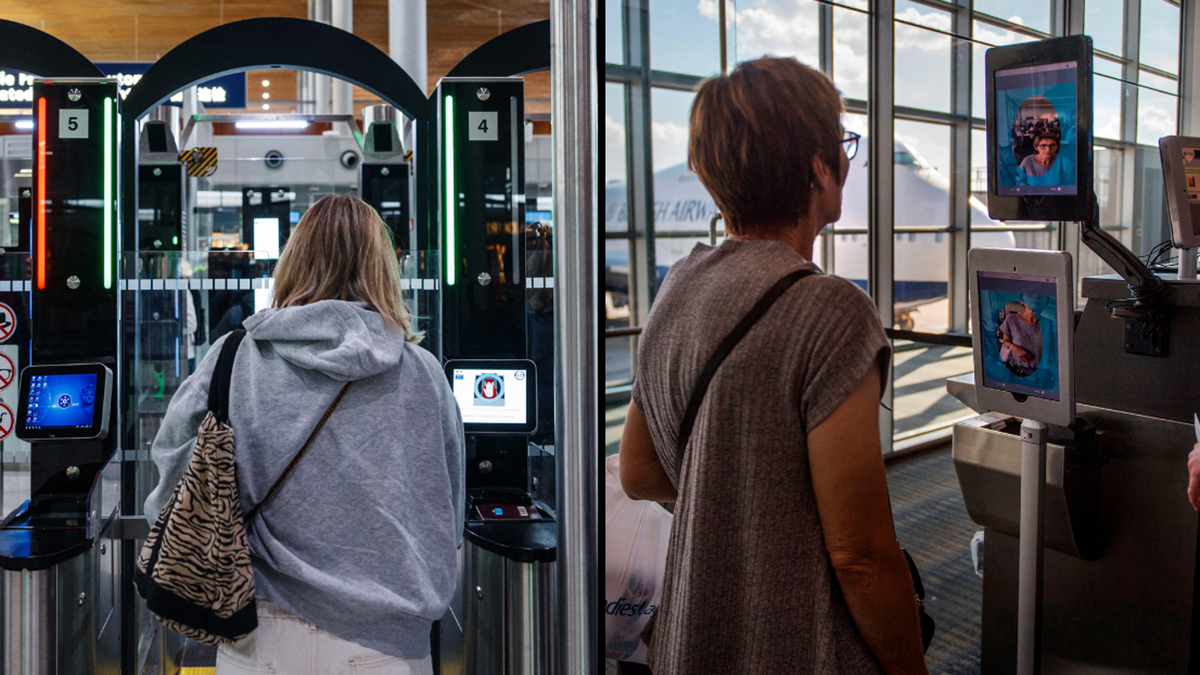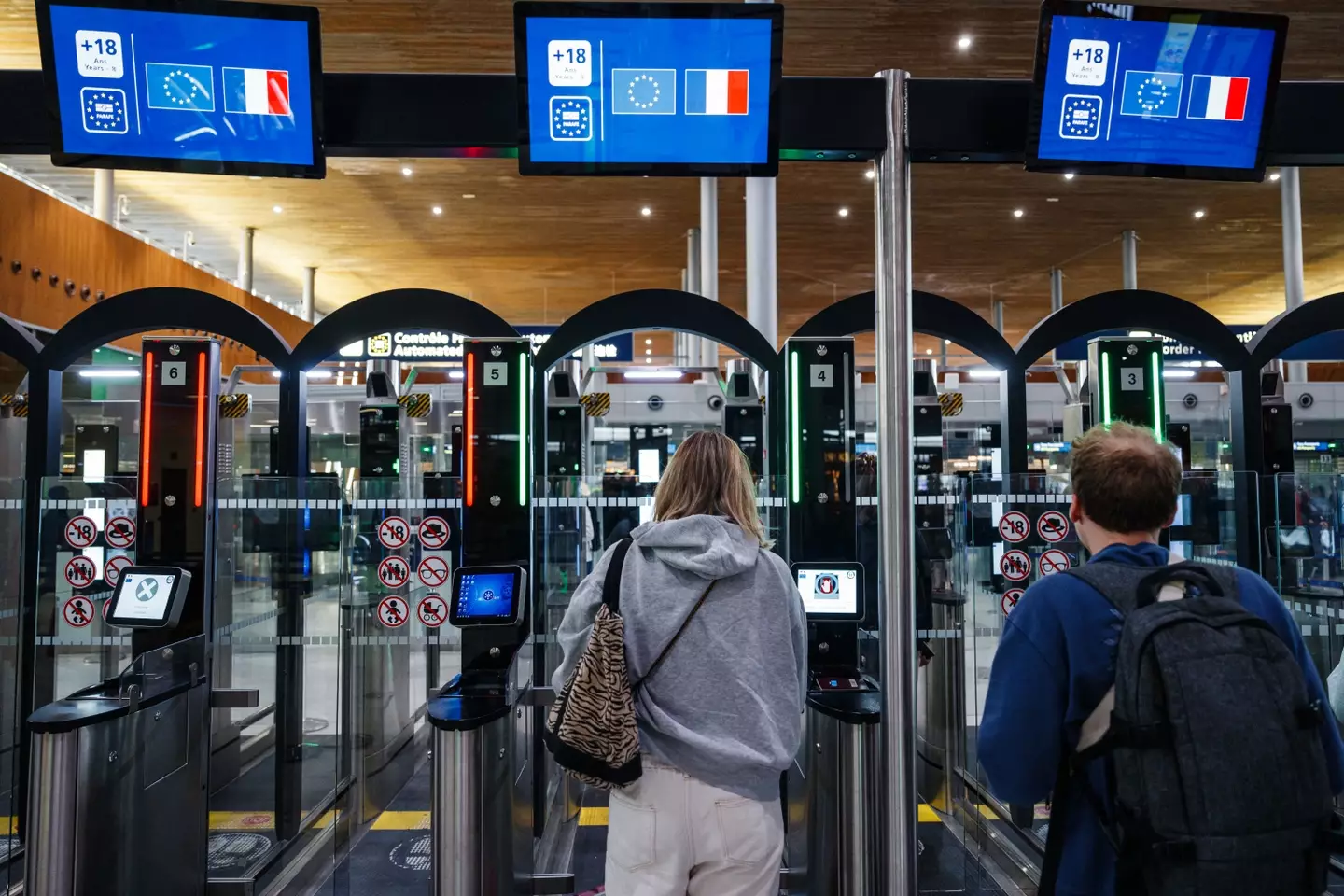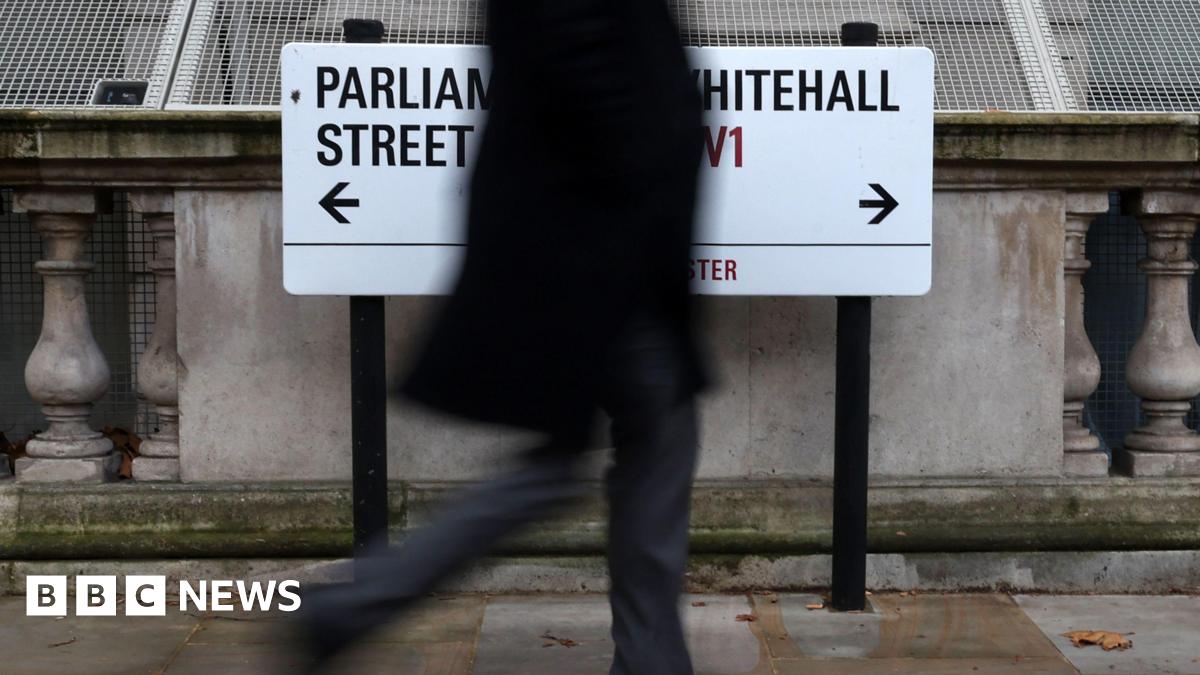Brits given fresh update on new EU travel system that Foreign Office says will ‘cause delays to holidays’

A fresh update has been given on a state-of-the-art travel system that everyone with a UK passport will have to go through if they want to head to the majority of destinations in Europe. And yes, it’s all because of Brexit.
After voting to leave the European Union (EU) in 2016, Brits were transferred into the ‘other’ category when it came to enjoying the freedoms of movement associated with belonging to an EU member state.
It has meant we’re now subject to a lot more rules than before the Brexit vote due to the UK no longer being a part of the EU’s Schengen Area.
And now, the EU is closing in on bringing in its brand new border security system that will impact everyone who doesn’t have an EU passport.
The EU’s Entry/Exit System (EES) explained
Dubbed the Entry/Exit System, or EES, it will see UK passport holders and everyone else not belonging to an EU member state subjected to biometric tests when entering an EU state.
This will include having our faces scanned for a copy of our retinas as well as our fingerprints taken and recorded. This is done every time you go in or out of the EU.
The EES will eventually go live across Austria, Belgium, Bulgaria, Croatia, Czechia, Denmark, Estonia, Finland, France, Germany, Greece, Hungary, Iceland, Italy, Latvia, Liechtenstein, Lithuania, Luxembourg, Malta, Netherlands, Norway, Poland, Portugal, Romania, Slovakia, Slovenia, Spain, Sweden, and Switzerland. That’s a lot of holiday destinations.
By introducing this system, it will see an end to stamping passports and other manual ways of checking entry to the EU.
UK passport holders and everyone else not belonging to an EU member state will be subjected to biometric tests when entering an EU state (SUSANNAH IRELAND/AFP via Getty Images)
EES delayed
As of putting together this update, the EES should have already gone live on 10 November.
But its roll out was delayed (for a third time) due to ongoing problems it has had when it comes to practically putting the plan in to action.
One of the main ways the EES was going to run was through a mobile app. But the app is not ready.
Speaking in the UK Parliament in October, John Keefe, chief corporate and public affairs officer of Eurotunnel parent Getlink, said: “The possibility of enrolling data away from the point of entry has great value. [But] it’s not clear when the app will be available, [and] it’s being prepared for subsequent entry to the EU not first entry and enrolment in the system.
“It’s targeted at those already enrolled in the system.”
In other words, those going in to the EU for the first time after the EES goes live will have to queue up and do it manually. It is only after that you can speed things up and process your trip on the app.

Current airport security gates in Paris (DIMITAR DILKOFF / AFP via Getty Images)
EES update as 2025 approaches
The European Commission has explained how the EES will work as 2025 nears. One way to get the ball rolling is to introduce a phased roll out, the Commission accepted, adding ‘it had not yet received the required declarations of readiness from all member states’.
As a result, the Commission last week proposed a new rule to give all EU countries six months to introduce the new system. The only problem with this is that no date has been given for the phased roll out.
New Internal Affairs Commissioner, Magnus Brunnersaid, said: “The Entry-Exit system is a big step towards more integrated and comprehensive border management. Allowing Member States to gradually phase in the new system will ensure it operates smoothly from day one.”
The EES will next be discussed on Thursday (12 December), where an implementation date could be pencilled in.
When it does finally come in, the Foreign Office has warned Brits they will ‘get their fingerprints and photo taken when entering the Schengen area’.
“You’ll get either your fingerprints or photo taken when you leave. You will not get a stamp in your passport,” its website states. “Queues at borders may be longer when these changes begin. If you enter the Schengen area through Dover, Eurotunnel at Folkestone or St Pancras International, your fingerprints and photo will be taken before you leave the UK.”
Related
The 6 best and worst airports in Africa including one…
The state of airport operations across Africa paints a diverse picture, ranging from world-class facilities to infrastructure in need of significant improvement
Warning over Ryanair, EasyJet and BA ‘hidden’ fees – and…
As the festive season approaches, around five million Brits are expected to travel abroad over the December period. Now, travel experts have warned that passeng
Simon Calder shares 3 items not to pack in luggage…
Christmas is already pricey, but hidden baggage fees can quickly turn festive travel from joyful to jolting.For those travelling home over the festive period, o
Britons warned of delays with new travel restrictions in Netherlands…
British travellers have been warned of potential delays due to temporary border controls introduced by the Netherlands and Belgium.According to the UK Foreign,









